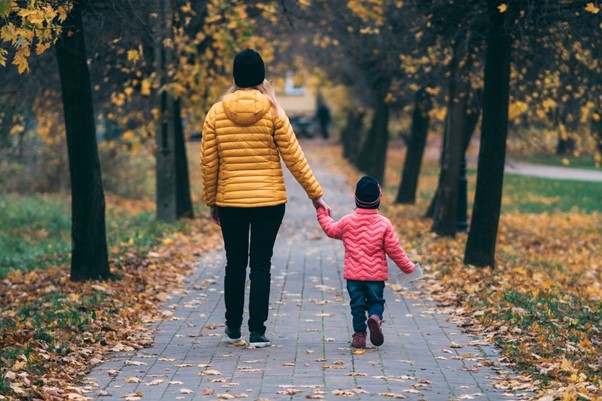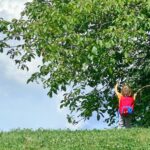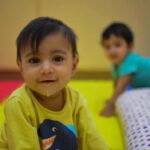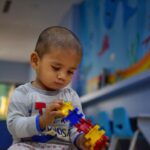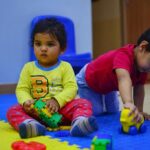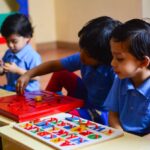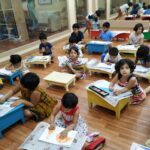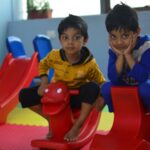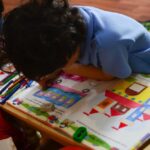
The Essence of Movement…
Movement and Learning? Yes! You heard it right. The more the movement the better will be the child’s brain functioning. Not just physically but also socially, emotionally and mentally your child will be ready to face challenges in school and also later in life.

The brain is composed of neurons or nerve cells which send and receive information. At birth, more than 100 billion neurons are already formed but not fully developed. These neurons will fully develop only when the brain starts forming connections. More the connections, better will be the child’s life experiences. ‘Smiling, Crawling, Walking, Talking, all the major sensory, motor and cognitive milestones of infancy and toddlerhood, are made possible by rapid development of the brain. ‘Remember the first time your child started walking?’. I’m sure you all can recall the series of milestones which helped him/her do so. Hence, its important to provide enough opportunities for movement right from an early stage in life for the child’s overall development.
Have you ever wondered why Movement is so Important during Early Childhood?
Research has found that movement in children can help increase memory, perception, language, attention, emotion and decision making.
Here are some Skills that movement develop: –
- Improves Sensory Capacities: The developing brain of a child makes good sense of what they see, touch, hear, smell and taste. Early sensory experiences allow infants to learn from their environment, so that they can navigate it. For e.g. if you allow your child to play in the garden, he/she will not only run or walk around, but also touch, smell and see things that a
 re new to their learning and vision.
re new to their learning and vision. - Promotes Physical Growth: Children need to move to activate the brain. Making use of motor skills daily through walking, running, jumping, crawling, climbing etc. can help the child develop normally during the early years.
- Helps attain Sensitive Periods: During the early years of life, i.e., (0-6) years, children pass through several sensitive periods like language, movement, small objects, order, social behaviour etc. These ‘windows of opportunity’ can be attained only if the child is exposed to the right environment at the right time. Attaining these sensitive periods will require the adult, parent or teacher to constantly provide opportunities and experience to help the child move, explore and learn independently.
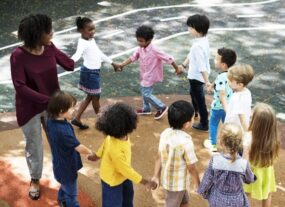
- Promotes learning through Trail & Error: This can be best learnt through didactic materials designed by Dr. Maria Montessori, which are self-corrective in nature. Maria Montessori always emphasized on maintaining ‘order’ in the environment. This will actually involve a lot of ‘movement’ as the child needs to ‘walk’ to each corner of the classroom to find the materials, work on them and again place them back in correct order.
- Promotes Intellectual Growth: Through physical activity, children come in contact with external reality. It is through these contacts they eventually acquire even abstract ideas. For e.g., birds can walk as well as fly, running can make you fall and run again.

- Improves Imagination & Thinking: The time when children freely explore without any adult intervention, they internalize their though process, try to imagine and understand the complex realities of life. ‘Hands on learning’ is what they carve for.
“Watching a child makes it obvious that the development of his mind comes through his Movements” – Maria Montessori
Here are some Tips to promote movement among Preschooler’s:
- Playing pee-ka-boo, with infants and toddlers.
- Giving different items on a tray e.g., spoon, ring, rattles etc. so that they can grasp, especially infants.
- Playing with bobo dolls, pop up toys, puzzles, xylophone.
- Going for walks in the garden or street.
- Giving enough time for free play, pretend play.
- Parents, caregivers and teachers can do action songs regularly with the children. “Heads and Shoulders Knees & Toes, Running Running, Hockey Pokey”.
- Keep toy cars, slides, sea-saw if possible.
- Promote the concept of “maintaining work cycle from day one of pre-schooling.
- Involve them in extra-curricular activities like dance, yoga, sports.
- Promote music and movement as much a possible in the daily routine.
It is therefore necessary to help your child move, it will not only help them in their development, but also keep them fit and healthy. The next time you see your child walking aimlessly, DO NOT STOP! Rather act as a guide and let him/ her explore.
